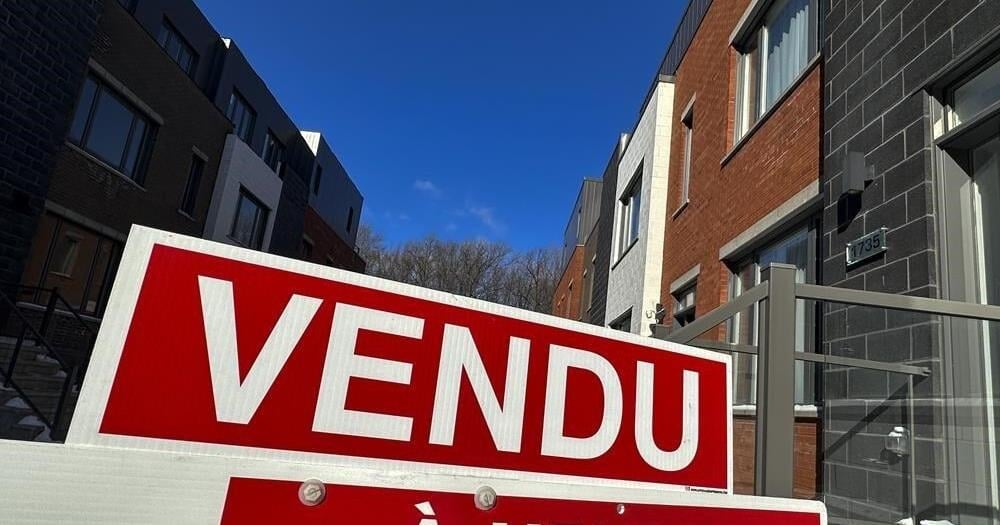Article content
When the economy begins to fire on all cylinders, buyers tend to show more interest in the housing market.

When the economy begins to fire on all cylinders, buyers tend to show more interest in the housing market.
And over the past several months, the gradual reopening of the economy, high vaccination rates, historically low interest rates and government support programs have all fueled job recovery, savings and propelled many more buyers into the market.
A market over the past 18 months that’s been characterized by high demand, limited supply, wildly rising prices, record sales and intense competition in the form of multiple bids on available homes.
Those conditions have led to a warning from the Canada Mortgage and Housing Corporation (CMHC) in its recent national Housing Market Assessment report.
Rising prices for homes combined with “continued overvaluation” of home prices and a growing gap between fundamental factors such as worker income have “created a high degree of vulnerability in Canada’s housing market.”
“A high degree of vulnerability means the housing market is more vulnerable to a potential downturn, with greater consequences if the downturn were to happen,” the CMHC notes in its recent release.
“Exceptionally strong demand and home price appreciation through the course of the pandemic may have contributed to increased expectations of continued price growth for homebuyers in several local housing markets across Ontario and Eastern Canada,” said Bob Dugan, CMHC’s chief economist. “This, in turn, may have caused more buyers to enter the market than was warranted.”
The HMA looks for potential imbalances in the housing market by assessing four key factors:
According to the report, the GTA housing market in particular continued to be assessed at a high degree of market vulnerability, even after existing home sales started to ease and the pandemic-induced buying frenzy calmed down during the second quarter of 2021.
Overall, CHMC found moderate evidence of imbalances in the GTA market and high market vulnerability.
Existing home sales remained elevated, relative to the number of new listings coming to market, even though we saw some easing in prices and sales in the second quarter.
It will come as no surprise to anyone that a persistently tight market led us to an overheated market with a demand-supply imbalance for existing homes that contributed to non-stop price acceleration.
The decline in new listings was enough to keep market conditions tight and price growth elevated, well into the second quarter of 2021.
As we moved into the third quarter of this year, market conditions further tightened which accounted for most of the market activity in the GTA. The seasonally adjusted sales to new listings ratio was 80% in July 2021, which was well about the five-year historical average of 58%.
The downturn in condo sales we saw heading into the pandemic as city dwellers migrated to the suburbs and cottage country to embrace the work from home model, started to rebound as regional openings resulted in workers and students returning to urban centres across the GTA looking to buy or rent, while the supply of new listings trended lower.
The HMA goes on to report that demand has persisted in suburban markets amid the pandemic due to increased prevalence of teleworking and the general desire among households to own larger homes while paying lower prices.
Home sales eased during the second quarter of 2021 while the lack of new listings on the market supported persistent price growth as a pool of buyers called it quits. Driven by tight market conditions for single-detached homes in suburban markets, average MLS price growth was higher in places such as York, Halton and Durham regions. The City of Toronto’s average MLS price growth was less obvious due to lower priced condominium apartments making up a larger share of sales.
And the HMA noted that despite high prices in Toronto, employment among high-income earners was relatively strong and remained supportive of housing demand in the second quarter of 2021. What we know is high income earners are more likely to be owners.
Looking toward next year, even with inflation on the rise, the CMHC report doesn’t suggest more than potential concern for price correction but it does seem likely we’ll see continued pressure on home and condo prices into 2022.
— Penelope Wild is the former Homes editor of the Toronto Sun and a realtor with Keller Williams Real Estate Associates.

TORONTO – One expert predicts Ottawa‘s changes to mortgage rules will help spur demand among potential homebuyers but says policies aimed at driving new supply are needed to address the “core issues” facing the market.
The federal government’s changes, set to come into force mid-December, include a higher price cap for insured mortgages to allow more people to qualify for a mortgage with less than a 20 per cent down payment.
The government will also expand its 30-year mortgage amortization to include first-time homebuyers buying any type of home, as well as anybody buying a newly built home.
CIBC Capital Markets deputy chief economist Benjamin Tal calls it a “significant” move likely to accelerate the recovery of the housing market, a process already underway as interest rates have begun to fall.
However, he says in a note that policymakers should aim to “prevent that from becoming too much of a good thing” through policies geared toward the supply side.
Tal says the main issue is the lack of supply available to respond to Canada’s rapidly increasing population, particularly in major cities.
This report by The Canadian Press was first published Sept. 17,2024.
The Canadian Press. All rights reserved.

OTTAWA – The Canadian Real Estate Association says the number of homes sold in August fell compared with a year ago as the market remained largely stuck in a holding pattern despite borrowing costs beginning to come down.
The association says the number of homes sold in August fell 2.1 per cent compared with the same month last year.
On a seasonally adjusted month-over-month basis, national home sales edged up 1.3 per cent from July.
CREA senior economist Shaun Cathcart says that with forecasts of lower interest rates throughout the rest of this year and into 2025, “it makes sense that prospective buyers might continue to hold off for improved affordability, especially since prices are still well behaved in most of the country.”
The national average sale price for August amounted to $649,100, a 0.1 per cent increase compared with a year earlier.
The number of newly listed properties was up 1.1 per cent month-over-month.
This report by The Canadian Press was first published Sept. 16, 2024.
The Canadian Press. All rights reserved.

MONTREAL – Two Quebec real estate brokers are facing fines and years-long suspensions for submitting bogus offers on homes to drive up prices during the COVID-19 pandemic.
Christine Girouard has been suspended for 14 years and her business partner, Jonathan Dauphinais-Fortin, has been suspended for nine years after Quebec’s authority of real estate brokerage found they used fake bids to get buyers to raise their offers.
Girouard is a well-known broker who previously starred on a Quebec reality show that follows top real estate agents in the province.
She is facing a fine of $50,000, while Dauphinais-Fortin has been fined $10,000.
The two brokers were suspended in May 2023 after La Presse published an article about their practices.
One buyer ended up paying $40,000 more than his initial offer in 2022 after Girouard and Dauphinais-Fortin concocted a second bid on the house he wanted to buy.
This report by The Canadian Press was first published Sept. 11, 2024.
The Canadian Press. All rights reserved.


New Brunswick Premier Blaine Higgs expected to call provincial election today
Sutherland House Experts Book Publishing Launches To Empower Quiet Experts


Arch Manning to get first start for No. 1 Texas as Ewers continues recovery from abdomen strain


Alberta Premier Smith aims to help fund private school construction


Canada’s Probate Laws: What You Need to Know about Estate Planning in 2024


Former Canada captain Atiba Hutchinson tells his story in ‘The Beautiful Dream”


New Brunswick Premier Blaine Higgs kicks off provincial election campaign


New Brunswick election profile: Progressive Conservative Leader Blaine Higgs